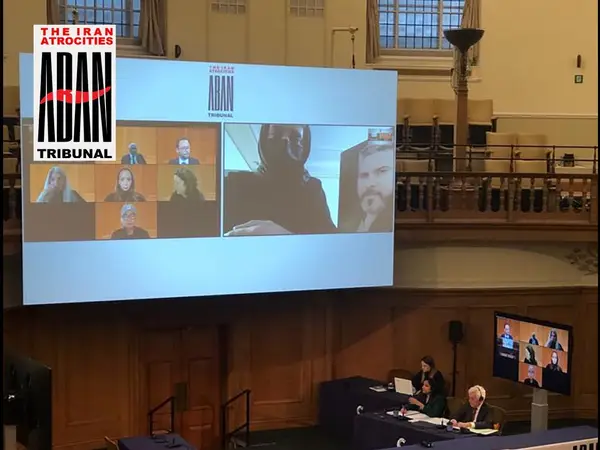The second round of a ‘people’s tribunal’ to investigate killings of protesters and rights violations by Iran has begun behind closed doors due to security reasons.
This round of the People’s Tribunal, organized by human rights groups, began work in London on Friday and will continue until Sunday.
The hearings in this round will be held behind closed doors because of considerations for the security of the witnesses, and only a selected number of journalists are invited to attend the sessions.
The human rights advocates who are engaged in the tribunal say after the first round that was held in November 2021, at least 116 new people volunteered to provide evidence about the bloody November 2019 protests that is the focus of the panels.
The protests were the bloodiest in Iran’s history with security forces opening fire on demonstrators in many cities, killing hundreds. Thousand were arrested and jailed without due process of law and there were numerous reports of torture in prison.
In the November session, the tribunal accused Iran’s top leadership of crimes against humanity and experts argued that there could be no question of impunity for political leaders.
The panel of the Tribunal has identified 27 more state actors as perpetrators of the violence, which brings the number of those accused of committing crimes under international law to 160.
The tribunal − also known as Aban Tribunal after the Iranian calendar month of Aban − was established on the first anniversary of the 2019 protests by the London-based Justice for Iran, the Oslo-based Iran Human Rights (IHR), and the international anti-capital punishment organization Ensemble Contre la Peine de Mort (Together Against the Death Penalty). The verdicts of the Tribunal will be symbolic.
The tribunal will hear and examine evidence and testimonies on crimes against humanity, extrajudicial killings and executions, torture, rape of prisoners, and harassment of the families of the victims which organizers say all indicate an extensive systematic state policy behind suppressing protesters. The Iranian Constitution recognizes the right to peaceful protests.
During the first round, the Atrocities Tribunal said that Iran’s top nuclear negotiator Ali Bagheri-Kani demanded that Britain stop the sessions.
Quoting unnamed “European sources”, the official Twitter channel of the Tribunal said the Iranian diplomat, who visited the UK Foreign Office on November 11, had threatened to stop part of his nuclear talks with world powers if the Tribunal continued its work.
After the first round was held, some hardline media in Iran called the tribunal a British stunt to shift attention from £400 million owed to Iran, while others said the United States or Zionists had set up a theatrical show, but it appears the event had enough impact on public opinion that Iran’s hardliners chose to react.

